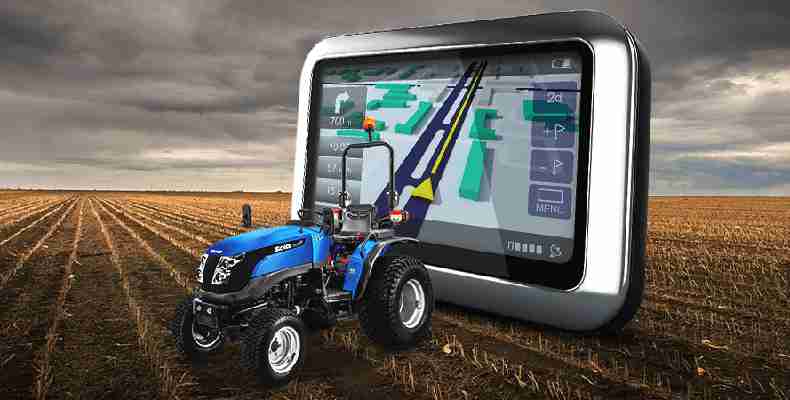Meaning Of Farm Mechanization:

Farm mechanization refers to the development and use of machines that can take the place of human and animal power in agricultural processes. The mechanization of agriculture that took place during the 20th century led to major changes in how farmers plant, irrigate and harvest crops. Combines, tractors, harvesters and other machinery have enabled farmers to increase their production while relying less upon an extended labor force. Farm Mechanization is the application of engineering principles and technology in agricultural production storage and processing on the farm. Farm Mechanization is applicable to land preparation, planting, fertilizer application, weeding and crop harvesting, Rearing, care and feeding of animals as well as processing and storage of Farm produce using appropriate Farm Machines. By applying this method, farmers are gaining more profits and able to increase their productivity of yield.
Problems Of Farm Mechanization
1. Land tenure system
2. Scattered Farm holding
3. Poverty of farmers
4. Inadequate facilities (Machinery)
5. Bad topography
6. Varied soil types
7. Inadequate spare parts
8. Inadequate technical man power
9. Problems of stumps and logs.
Advantages Of Farm Mechanization
1. Time lines of operation
2. It saves labour
3. It reduces health hazard
4. It reduces drigery
5. Increases in-Farm revenue
6. It encourages large scale Farming
7. Increase in output
8. Co-operation among farmer’s
9. It increases specialization of labour
10. It saves time
11. Reduction in cost of production
12. Improvement in quality of products
13. Availability of labour for other sectors
14. Use of less human labour
Disadvantages Of Farm Mechanization
1. High cost
2. Displacement of workers
3. Compaction of soil
4. It causes environmental pollution
5. Degradation of landscape
6. Land tenure system
7. Destruction of soil structure
8. Redundancy of farm labour
9. Few crops can be mechanized
10. Inadequate technical know-how
11. Damage to crops
12. Inadequate spare parts
13. High cost of maintenance
14. Spread of pests and diseases
15. Human control
16. Unstable fuel supply.
Types of Modern Technology in Agriculture
Information Technology in Agriculture
Information Technology helps the farmers to think proper ideas and take decisions to increase the productivity of their yields.
Information Technology improves and strengthens the agriculture sector in India.
Through Information Technology we can know the information regarding weather forecasting and climatic conditions.
It helps in developing natural and better agricultural practices.
It explores marketing system, price, and reduction in agricultural risks and increases income.
Nowadays, Information Technology is used to implement online trading of agricultural products.
Information Technology can optimize various inputs such as water, pests, fertilizers, and seeds.
Global Positioning System (GPS) Technology in Agriculture
Most of the Farmers are using Global Positioning System technology for better results.
By applying GPS devices to your tractors. You can set your machine in auto driving mode, and this process can plough your field without humans.
In GPS we have to set the programme and instructions to do the cultivation, sowing, watering, and also we can set instructions to apply fertilizers in your field.
By applying this technique farmers can save their money and time.
Nanotechnology in Agriculture
Nanotechnology is commonly used in agricultural products.
It is used to protect the crops in the field. They can monitor the growth of plants and detect the diseases in plants.
Electroscope technique helps to absorb the fertilizers and pesticides in your field.
It is used to study plants hormones and its regulations.
Carbon Nanotubes are useful in detecting and killing the pathogens and viruses in the crops.
Breeding in Agriculture
Plant breeding increases the yield and productivity of the crops.
Breeding is used to develop new kinds of a crop from a single crop.
The evolution of new crops can be done by Hybridization, and Tissue culture.
At present agriculture system, breeding is necessary, and it gives a huge opportunity for the farmers.
Genetically Modified Organisms (GMOs)
Genetically Modified Organisms (GMOs) helps in maintaining crops from the toxic chemicals and fertilizers.
Some parts of plants not used for cropping system. We can implement the waste parts of those crops, and used for productivity.
GMO crops produced in laboratories by applying the practices of Breeding and Tissue culture.
Irrigation System in Agriculture
It provides water to the large farms of agriculture fields, and also we can find water resources in dryland areas.
There are some technologies like preparing farm ponds, which we can store water in them.
Drip irrigation and sprinklers can provide water to all the areas in the field.
The artificial rainfall provides water facilities even in drought situations and in drought-prone areas.
Advantages of Modern Technology in Agriculture
Modern machines can reduce efforts of farmers.
It can reduce the production time.
It is used to supply water to the crops.
Machines are useful for sowing the seeds.
It is chemical pest control.
Improves fertility of the soil.
Increase the price and demand of the products.
Reduce the impact on the ecosystem.
Disadvantages of Modern Technology in Agriculture
Due to lack of practical knowledge, farmers cant handle the machines properly.
Maintenance cost is very high.
Over usage of machines may lead to environmental damage.
It is efficient but it has side effects and drawbacks.
Most of the farmers dont know about the usage of modern machines.
Conclusion
These are the modern technologies in agriculture in India. You can use them in your farms which will increase the productivity. Since there are many advantages and disadvantages of modern technology in agriculture. We hope these modern techniques of agriculture will help you. By renting out the farm equipments via GoHelpMate helps marginal farmers with labor cost & equipment owners get extra income by renting them out.